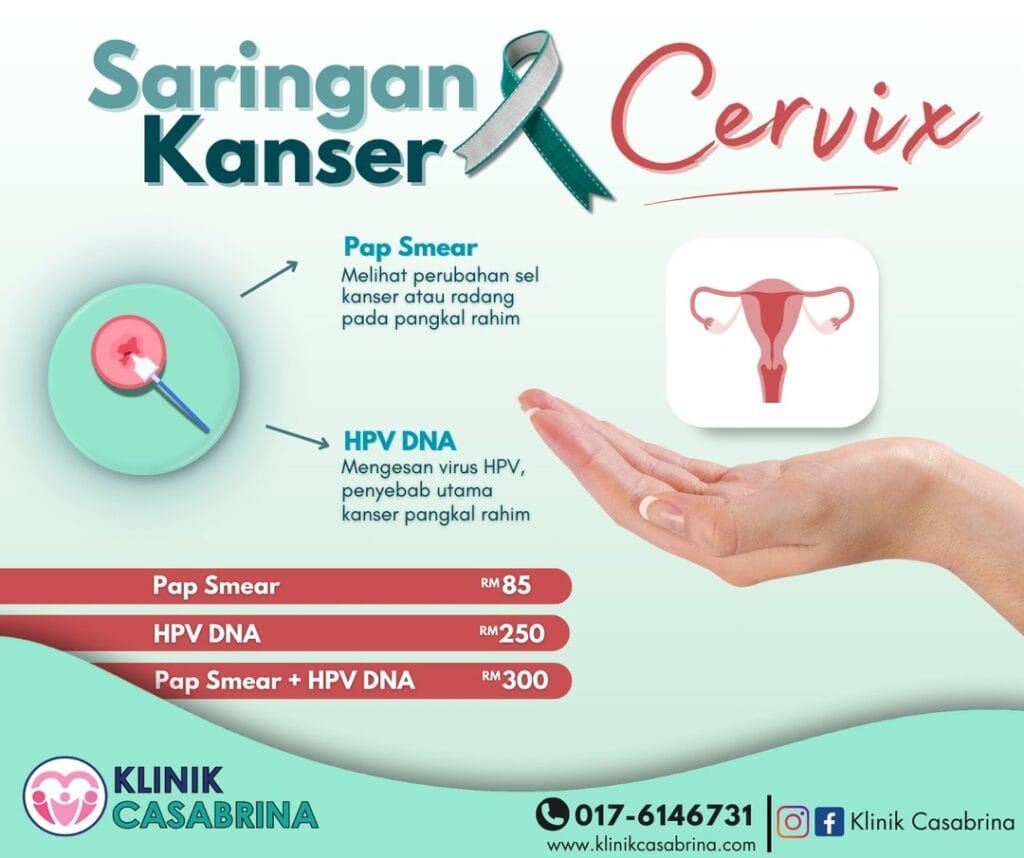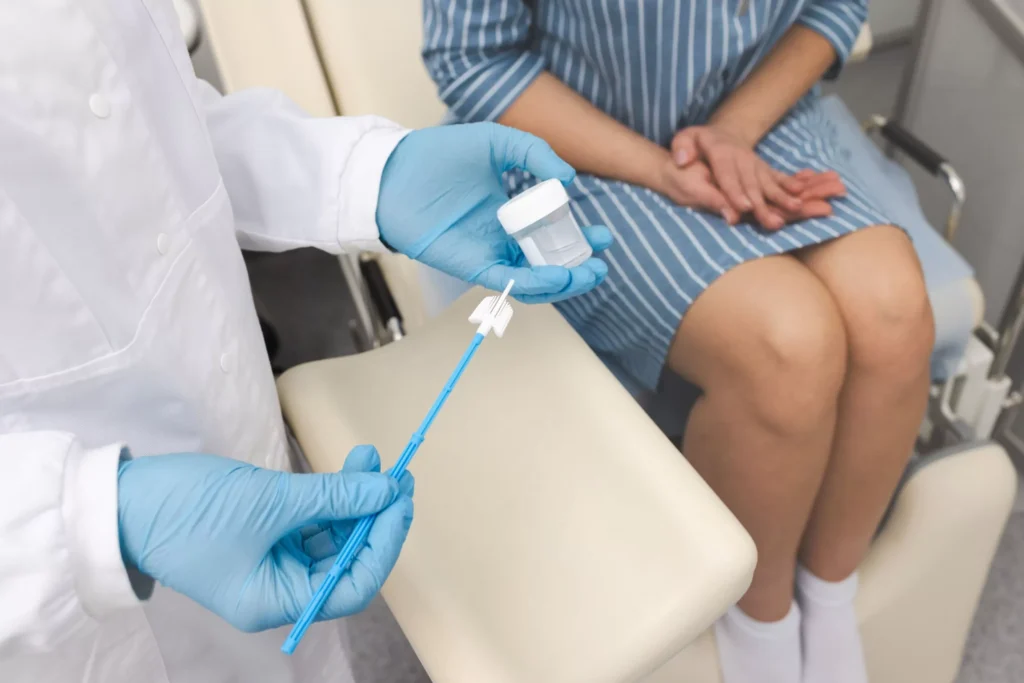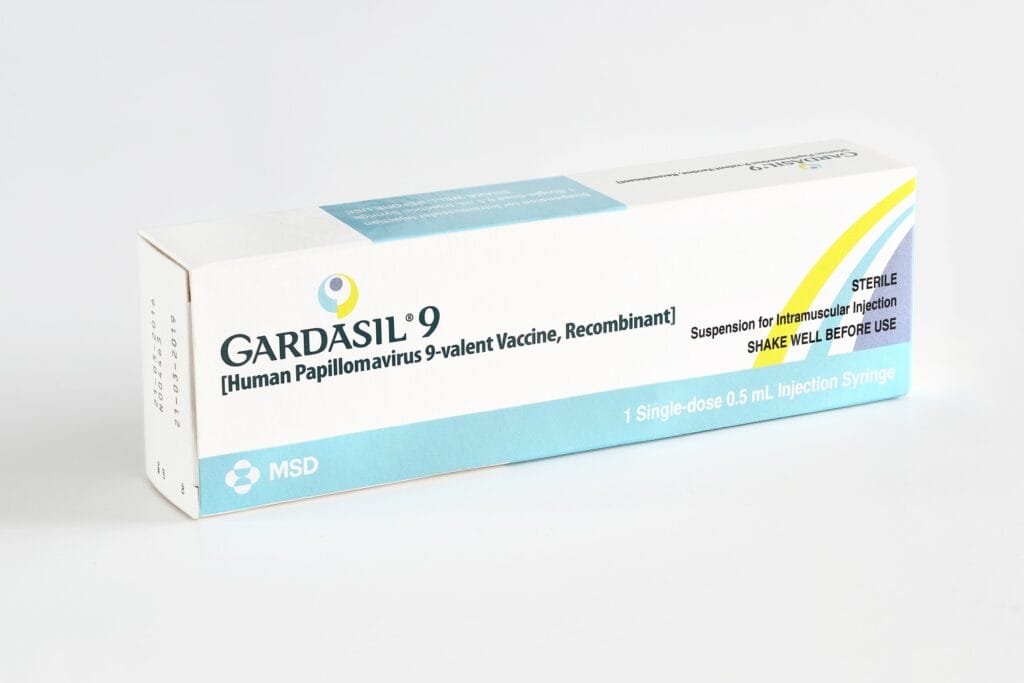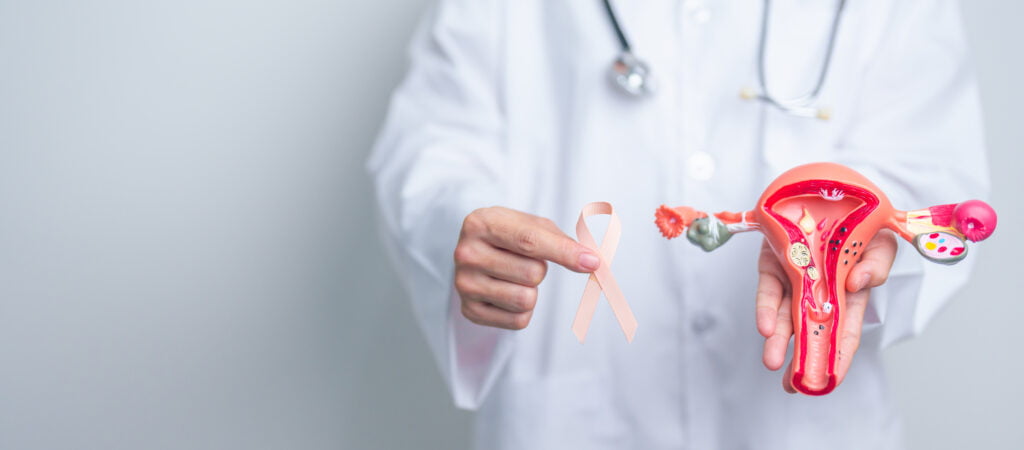A Pap smear is a simple test that can make a difference for women to catch early signs of cancer. At Klinik Casabrina, we offer safe, comfortable, and confidential Pap smear testing to help detect cervical cancer before symptoms even begin.
Whether it’s your first time or part of your routine health check, our experienced female doctors are here to make you comfortable and support you every step of the way.


A Pap smear (also called a Pap test) is a screening procedure used to check for abnormal cells in the cervix—the lower part of the uterus that opens into the vagina. These cell changes could be caused by human papillomavirus (HPV), which is the main cause of cervical cancer.
The test is quick, minimally uncomfortable, and only takes a few minutes.
Cervical cancer often has no early symptoms, which is why regular screening is critical. When caught early, almost all cases of cervical cancer are highly treatable.
Pap smears can also help detect:
A Pap smear is quick and relatively painless. You’ll lie on an exam table while your doctor uses a speculum to gently open the vaginal walls. A soft brush or spatula is used to collect cervical cells — this may feel like light pressure or mild discomfort, but it’s over in seconds.
There’s no downtime, and you can return to normal activities immediately after.
Learn more about preparing for your pap smear appointment here (Malay).
If your Pap smear is normal, it means no abnormal or precancerous cells were found on your cervix. If you’re between ages 21–29, your next test is usually recommended in 3 years. For women 30 and older, a Pap + HPV co-test may extend the interval to every 5 years if both are negative.
An abnormal Pap smear result does not mean you have cervical cancer. It simply means some cells appear different from normal under the microscope. These changes are usually caused by HPV (human papillomavirus), but they can range from mild to severe.
Here’s some of the most common findings:
ASC-US
This is the most common abnormal result, and it’s also the most ambiguous. The cells look slightly unusual, but it’s unclear if it’s due to HPV or another cause (like inflammation or infection).
LSIL
This suggests mild changes in the cells that are usually caused by an HPV infection. Common in younger women and often clears up without treatment.
HSIL
This indicates more serious cell changes that are less likely to clear on their own and more likely to progress if left untreated. This doesn’t mean you have cancer, but it does mean there’s a higher risk of developing it over time.
Atypical Glandular Cells (AGC)
These are changes in the glandular cells that line the cervical canal or uterus. Less common than squamous cell changes, but may suggest precancer or cancer.
Over 80% of abnormal results are not cancer and do not become cancer. The body often clears HPV and minor cell changes on its own, especially in younger women. When caught early, abnormal cells can be monitored or treated before they cause problems.
| Result | Common Next Step |
|---|---|
| ASC-US | HPV test or repeat Pap in 12 months |
| LSIL | Repeat Pap or colposcopy |
| HSIL | Colposcopy and possible treatment |
| AGC | Colposcopy + possible uterine biopsy |
If your results are concerning enough, our clinic can help refer you to the right health professionals for further testing and possible treatment.
The HPV vaccine helps prevent infection from the most dangerous types of human papillomavirus (HPV), especially types 16 and 18, which cause around 70% of cervical cancers. It also protects against strains that cause genital warts.
These vaccines are available at Klinik Casabrina for adolescents and adults (both men and women, especially if they haven’t been previously vaccinated or exposed to certain strains).


Women’s Health Expertise: Our doctors have specialized knowledge in women’s health issues, ensuring that you receive the best care possible.
Compassionate Approach: We understand that women may have unique healthcare concerns, and we provide care with empathy and understanding.
Privacy and Comfort: We prioritize your comfort and privacy during all “Sakit Puan” care services.
Holistic Care: We offer a holistic approach to women’s health, addressing physical, emotional, and reproductive well-being.
Most women should start Pap smear screening at age 21, even if they’re not sexually active. Depending on your age and results, your doctor may recommend screening every 3 to 5 years.
Yes. The HPV vaccine protects against the most common cancer-causing strains, but not all of them. Pap smears are still essential to catch any abnormal cell changes early.
Yes. There’s no harm in doing both during the same visit. Many clinics offer this for convenience and added peace of mind.
Yes. It’s been widely studied and is considered very safe and effective. Side effects are usually mild, such as a sore arm, low-grade fever, or tiredness.
Yes. HPV also affects men and can lead to genital warts, penile cancer, and oropharyngeal (throat) cancer. Vaccination helps protect both the individual and their partners.
Most women feel only mild discomfort or pressure. The test takes just a few minutes and is well tolerated by most people.
Early detection makes all the difference. If it’s been more than three years since your last Pap smear or if you’ve never had one, the next best time is now. Not sure if you need the HPV vaccine? We can help with that too. Call us or book online to schedule your Pap smear appointment at Klinik Casabrina today.
Klinik Casabrina is a women’s and children’s healthcare clinic in Seremban, Malaysia. We provide specialized services such as gynecology check-ups, antenatal and postnatal care, and more.
Copyright © 2023 CASABRINA MEDICAL SDN BHD 202201045614 (1491311-M). All Rights Reserved | HTML Sitemap | Privacy Policy | Created by Hypercharge.